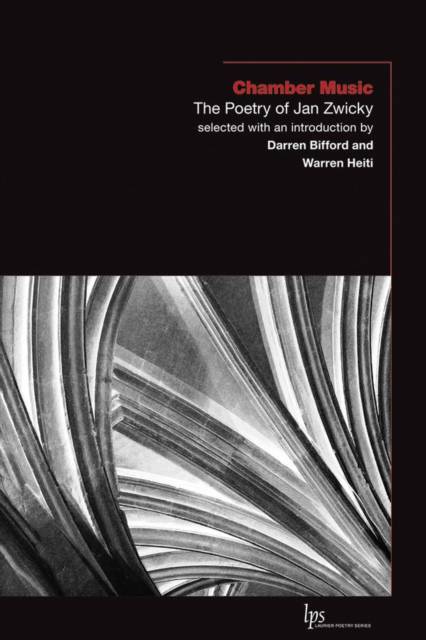
- Afhalen na 1 uur in een winkel met voorraad
- Gratis thuislevering in België vanaf € 30
- Ruim aanbod met 7 miljoen producten
- Afhalen na 1 uur in een winkel met voorraad
- Gratis thuislevering in België vanaf € 30
- Ruim aanbod met 7 miljoen producten
Zoeken
€ 26,45
+ 52 punten
Omschrijving
Arcing across thirty years and seven volumes, Jan Zwicky's poetry has always been acutely musical (and sensitive to the silence out of which music comes). In the compositions in Chamber Music, the first anthology of Zwicky's poems, one may perceive the attunement of her vocations: poet, philosopher, violinist. Her poetry both praises and relinquishes the earth, bearing witness to the fierce skies of the prairies and the freezing rain of the West Coast. Enacting the virtue of clarity prized and defended by her explicitly philosophical work, this poetry is both resonant and integrated. It is also formally diverse, ranging from the singular focus of the lyric ode to suites of variations and fugal structures, from polyphonic textures to the sprawling reach of narrative gestures. Throughout, one feels the deft hand of an adept using powerful metaphors to explore themes of colonial violence, environmental devastation, spiritual catastrophe, and transformation. Resisting Western philosophy's exclusion of imagination from civic life, Zwicky's poetry is noteworthy for the tension it achieves between the abstract and the personal, the general and the particular. Meditating repeatedly on themes of love and grief, this poetry is at once passionately committed to the lucidity of its utterances and the fidelity of its images.
Specificaties
Betrokkenen
- Auteur(s):
- Uitgeverij:
Inhoud
- Aantal bladzijden:
- 102
- Taal:
- Engels
- Reeks:
- Reeksnummer:
- nr. 22
Eigenschappen
- Productcode (EAN):
- 9781771120913
- Verschijningsdatum:
- 11/12/2014
- Uitvoering:
- Paperback
- Formaat:
- Trade paperback (VS)
- Afmetingen:
- 150 mm x 226 mm
- Gewicht:
- 158 g

Alleen bij Standaard Boekhandel
+ 52 punten op je klantenkaart van Standaard Boekhandel
Beoordelingen
We publiceren alleen reviews die voldoen aan de voorwaarden voor reviews. Bekijk onze voorwaarden voor reviews.











